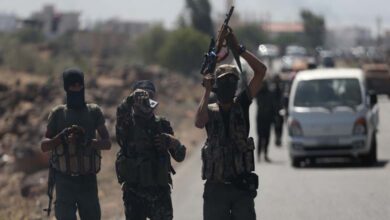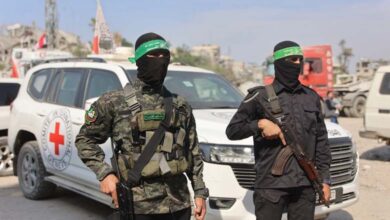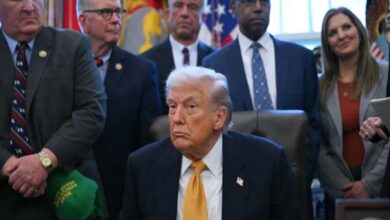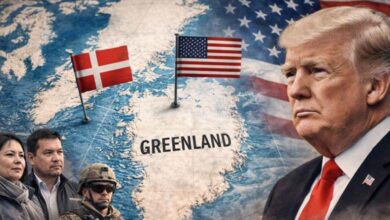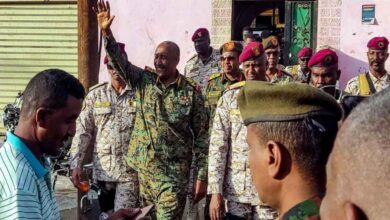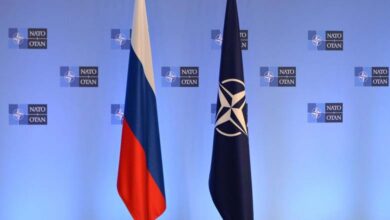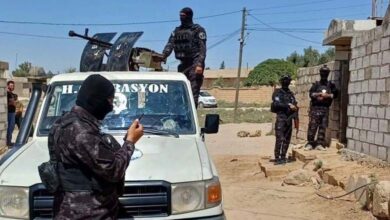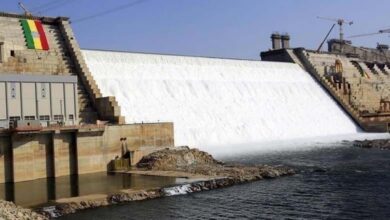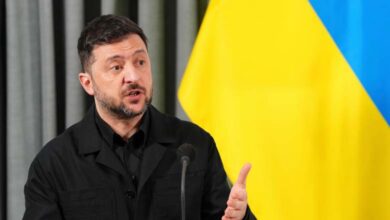Paris terrorist attack puts spotlight on Kurdish issue
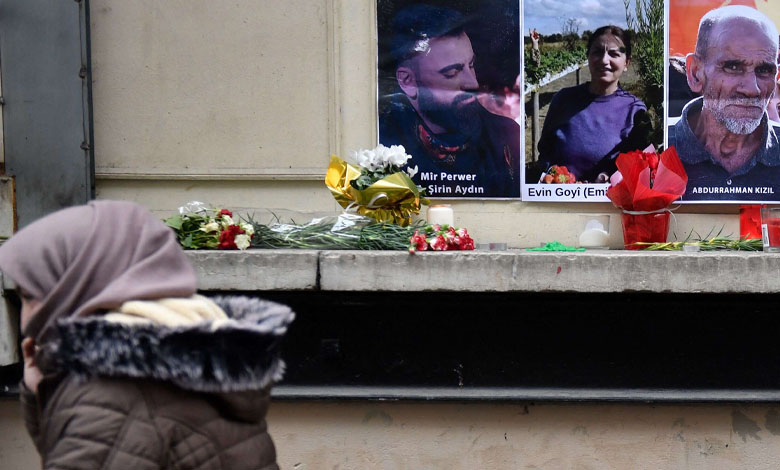
The killing of three Kurds in Paris on Friday by a Frenchman who confessed to committing a crime motivated by “hatred” has further underscored the divisive demands of the population, amid many geopolitical challenges.
The march to honor the victims on Monday saw pain that transcended the killing, with protesters chanting in Kurdish “martyrs who do not die,” and in French “women, life, freedom,” the slogan of the protests in Iran.
They also demanded “truth and justice,” while many recalled the assassination of three female PKK activists on January 9, 2013, in Paris, an incident whose circumstances have not yet been revealed. This comes at a time when the PKK is considered Turkey’s arch-enemy, which it and the EU classify as “terrorist.”
Here’s a look at a stateless population of 25 million to 35 million spread among Iraq, Iran, Syria and Turkey.
“Kurds live in areas spanning around half a million square kilometers, mostly Sunni Muslims, as well as non-Muslim minorities and mostly secular political groups.”
The collapse of the Ottoman Empire after World War I paved the way for the creation of a Kurdish state. But after Mustafa Kamal’s victory in Turkey, the allies reversed their decision.
“In 1923, the Treaty of Lausanne enshrined the control of Turkey, Iran, Great Britain, and France over the Kurdish populations of Iraq and Syria.”
Since then, the Kurds demanding a unified Kurdistan have been perceived as a threat to the territorial integrity of the states in which they have settled, depending on the vicissitudes of international events, though at times they are seen as temporary allies of certain powers.
But Kurds, who have never lived under central authority, are also divided into myriad parties and factions. “These cross-border movements are often at odds with one another, in particular over alliances with neighboring regimes.”
In Syria, the Kurds adopted a neutral stance at the beginning of the civil war in 2011, before taking advantage of the chaos and establishing self-administration in the northern regions.
Kurdish fighters then dominated the Syrian Democratic Forces (SDF) alliance, which had fought the Islamic State (IS), with support from the US-led international coalition.
The Syrian Democratic Forces (SDF) now control an area where tens of thousands of jihadists and their families are being held, unsuccessfully pleading for their return to their home countries.
“But while they see that they have fought IS in the Levant, on behalf of the rest of the world, Turkey is going after them.”
Ankara launched a series of airstrikes on Kurdish fighters’ positions in northern Syria on November 20. Turkish President Recep Tayyip Erdogan is also threatening to launch a ground military operation in northern Syria.
The Kurdish issue is one of several sources of tension in bilateral relations between Paris and Ankara.
The investigation into the 2013 killing of three PKK activists in Paris suggests that the suspect may have acted for the Turkish intelligence services. The latter died, but counterterrorism judges resumed investigating the case.
In April 2021, four men of Kurdish origin were attacked with iron bars in the office of an association in Lyon, in the center-east of France, in an attack the victims blamed on the recently disbanded Turkish nationalist extremist movement Gray Wolves.
For obvious reasons, Friday’s tragedy in Paris raised fears among France’s 150,000 Kurds.
There are direct threats, the Kurdish political, cultural and diplomatic institutions in France are right to be frightened,” Adel Bakhouan, director of the French Center for Research on Iraq, told the Journal du Dimanche newspaper. He also expressed concern that excesses at the margins of the demonstrations “taint the great solidarity of the French public.
In addition, the Kurdish community rejects the hypothesis of a racist crime by a man who acted alone. “The fascist regime of B. Erdogan has struck again,” Ocaid Polat, the young head of the Kurdish Democratic Council in France, said Monday.
Without any apparent link, a 40-year-old man of “Turkish origin” was placed in police custody Tuesday after being injured by a hairdresser’s scissors “of Kurdish origin” in Rubex (north), in a brawl linked to the broadcasting of Kurdish music, AFP has learned from a source close to the investigation.
Ankara summoned the French ambassador to Turkey to express its “dissatisfaction with the dark propaganda of the PKK,” a Turkish diplomatic source told AFP.
“Our ambassador stressed the outrageous nature of the attack,” the French foreign ministry told AFP, adding that “the public prosecutor’s office spoke publicly of a racist motive for the suspect.”


